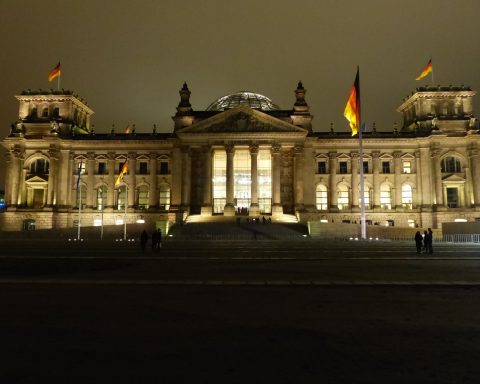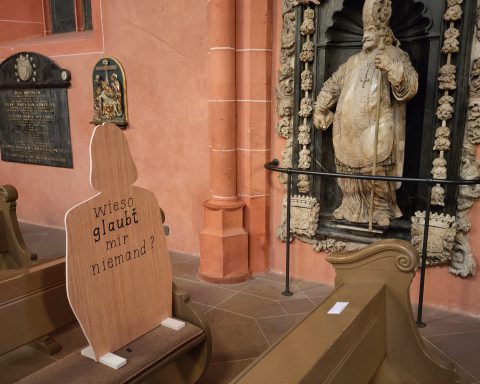I started my new job in Eilenburg in early September 2016. Eilenburg is a quiet little town. It seems to be populated mostly by pensioners who all wear the same grey, brown and beige jackets.
In fact, I find Eilenburg a little too quiet. I stand out like a sore thumb just by wearing a shirt when I go to work. Or maybe by being below fifty. I don’t know, but people give me suspicious glances and I don’t feel particularly welcome. And my face is northern European.
Imagine what Eilenburg must be like a for a 22-year-old Arab.
I had no idea terror suspect Jaber al-Bakr lived literally a stone’s throw away from where I work. His house was a skilfully renovated apartment building from the 1920s. When al-Bakr looked out the window, he would have seen the glorious Eilenburg Castle.

I went around to investigate what he was like. At first, I randomly approached people I met on the street, asking them whether they knew him.
“Sure, I’ve seen him once at the farmer’s market. Looked pretty normal to me, just like any other guy. He was all by himself,” one person told me.
“I’ve seen him once at the Stadtfest. Nothing unusual about him,” I heard from someone else.
I decided to ring the doorbell of some of his neighbours. There are eight apartments in his building. Most of his neighbours either ignored me or weren’t at home, but one elderly lady let me in and talked to me.
She lived right across the hallway from al-Bakr’s flat, whose door had been visibly sealed by the police. If there was anyone who knew him in this building, surely I had come to the right place.
“He was a normal person. He rode his bike, always said hello, was always tidy and never really caused any trouble. There was never any noise from his apartment and I think he rarely had guests.”
His neighbour was a refugee herself. She was driven out of East Prussia after World War II and had found a new home in Eilenburg.
“I understand that refugees need a roof above their heads. I was one myself, you see? And people helped me then.”
Beyond that there wasn’t much she could tell me. He seems to have been very quiet.
“I heard he was a student, but I don’t know whether that was true or not. He never really said anything to me. About four weeks ago, he grabbed two bags and a backpack and left. That was the last I’ve seen of him.”
Before al-Bakr lived in that building, he stayed in a WG, also in Eilenburg, with a couple of other Syrian refugees.
I found the building he once resided in, but everyone had moved out in the meantime. Via the newspapers, I knew that al-Bakr had been seeing social workers when he needed help. After a bit of research I finally managed to speak to Torsten Pötzsch, a local youth worker who knew both al-Bakr and his flatmates.
“There was absolutely nothing unusual about him,” he also said. “I felt that he was happy to be in Germany. I remember well how enthusiastic he was about finally moving into his own place. He got nice furniture and set himself up like young people do. I felt like he was starting a new life.”
Apparently his flatmates had become a bit fed up with him. He was quite a bit younger than they were, and significantly less independent.
“They took him shopping and took care of him, but I think they were quite relieved when he moved out. He was a bit too young for them I guess,” said Pötzsch.
Wanting to know how this quite ordinary guy became a radical extremist, I asked Pötzsch about al-Bakr’s attitude towards religion.
“From what I know he wasn’t religious,” he replied. “Quite to the contrary, actually. When his flatmates did their prayers, he never joined. The group went to Leipzig sometimes for the Friday service.”
Pötzsch then added:
Al-Bakr went along, but he didn’t go to the mosque. He stayed at the train station, used the free internet, and downloaded dirty films from the internet.
Pötzsch was shocked when he learned what happened. The Jaber al-Bakr he knew was neither an extremist, nor suicidal.
I don’t know if there is more to find out from the people who knew al-Bakr in Eilenburg.
His brother, who still lives in Syria, claims that al-Bakr was indoctrinated by an imam from Berlin, but that he’d never have blown himself up. His brother also wants to take revenge on the Syrians who captured al-Bakr in Leipzig, blaming the Saxon ministry of home affairs for his death. Other media reports state that al-Bakr travelled to Turkey earlier this year, possibly having been trained by Daesh in Syria.
But one thing seems clear. Al-Bakr’s religious attitude seems to have had little to do with what happened. Al-Bakr watched porn, wore shorts (which conservative Muslims deem forbidden), did not pray regularly and, most importantly, committed suicide (radical Islamists consider suicide a ticket to hell, while suicide bombers go to paradise).
But no matter what really happened, Eilenburg is part of the story that explains how al-Bakr changed from being an apparently delightful young man to a potential terrorist.








